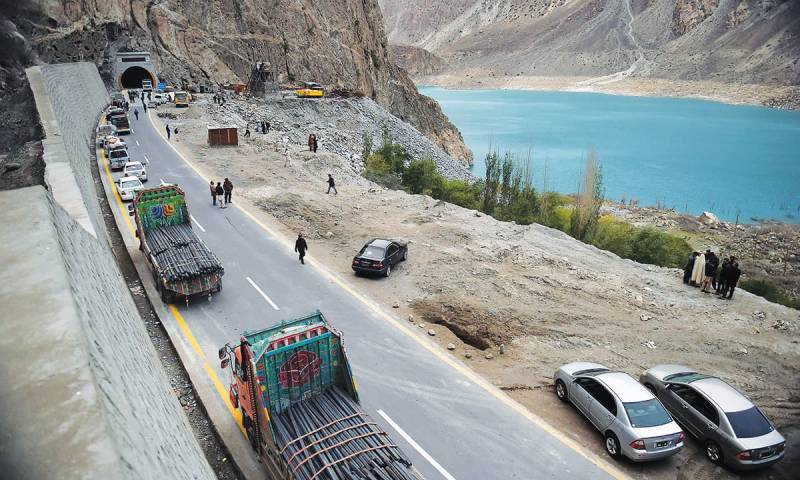Profit and loss is an imperative part of all economic activities. It is not only the phenomenon of private investment but also the government sector, which according to modern and classical economics are the most vulnerable sectors of the economy owing to the lack of profit motive that would provide the incentive to allocate resources efficiently.
When a private entity is experiencing a loss, it has two options: either to file for bankruptcy, or restructure itself so that efficient allocation of resources may become possible. In the case of a public sector, bankruptcy or independent restructuring is a very difficult process.
If government economic planning is restricted only to its economic boundaries, then the probability of its damaging effect might be minimized. But the irony is that it is not possible, because every economic initiative of any government becomes the identity or narrative of that political party.
Let’s study the case of privatization. PIA has accumulated liabilities of over Rs300 billion with the loss of over Rs5.6billion monthly. If it were a private organization it would have filed for bankruptcy much earlier. But, the wastage of people’s tax money continues even as the quality of PIA’s services deteriorates with respect to private airlines. The same is happening with other state-run commercial organizations.
If we analyze bilateral trade agreements between countries, we realize that these might be profitable. It depends on the terms and conditions of the agreement. Secondly, the trend of the regional trade agreement is continuously declining which was on the rise, especially after the emergence of European Union. The European model itself is in crisis, ASEAN is not developing anymore, and NAFTA is being killed by Trump. There are no serious efforts for trade regionalization all over the world except China, which aims to strengthen its strategic and logistical arms with these corridors. The famous economist Dani Rodrick concludes his article Don’t Cry over Dead Trade Agreements with these words:
“Let us keep this in mind as we bemoan the passing of the era of trade agreements. If we manage our own economies well, new trade agreements will be largely redundant.”
Causes behind this downfall, in my opinion, mostly are political in nature instead of economic.
CPEC is such a case. The corridor can be profitable for our economy. But, the suppositions and speculations which are being made about this corridor are not possible in reality. There is no such economic model that guarantees economic development merely through a trade route. The increase in GDP from 0.5% to 1% is expected, but it also depends on the terms and conditions of the trade agreement. Current account crisis is expected when the principle and interest payments will be due, according to the experts. There is the unavailability of all information relevant to the CPEC which hinders the possibility of its fair cost and benefit analysis.
Unfortunately, CPEC has become a political matter instead of economic. The Nawaz government is ready to participate in the next election on the basis of this project (with other state-run development projects) by claiming that CPEC is a game-changing development project and a great achievement. The prevailing state narrative is defining patriotism on the base of it, while provinces are fighting and lobbying with each other to get a maximum role in it. Interestingly, the military establishment is not out of the game, declaring itself not only as a guardian of country’s geographic and theological boundaries but also CPEC. So in this scenario how is it possible to analyze fairly the cost and benefit of this project which is becoming sensitive day by day?
Pakistan is not the only case where economics and politics are obstructing each other so that both have been negative implications. Let’s see the example of USA. Economic statistics reveal that North American Free trade agreement (NAFTA) is in advantage for the US economy. It added value in US manufacturing by $972 billion, more than 19 times as much as Mexico’s gain since NAFTA came into effect. But in the last US election, populist Trump propagated that NAFTA is impacting US market so badly that we are not only losing our jobs, but also value in industries. Now, he is threatening to leave NAFTA.
Economist Ricardo Hausmann writes in his article When Leaders Are True to Their Lies:
“All governments lie. A few believe their own lies. But things get dangerous when they act in order to be true to their lies.”
In Pakistan, we are also facing the danger that our government might act in order to be true to its lies.
What must happen is that Pak-China economic corridor must be discussed on the basis of economics first, then on political and social grounds. The government needs to open all concerning information to the public so that economic analysis and dialogue could be possible and enable to guide government on how to make terms and conditions in order to secure the nation’s interest. It is an uncivilized and undemocratic way to misguide people by manipulating facts. When promises will not come to reality, people will make them part of their existing conspiracy theories that Jewish, Christians, and Hindus hijacked the benefits of the corridor, and politicians are also part of this game.
The most important reality is that economic development emerges from the people’s behavior in market and society as well. It is needed that we manage our economy in order to increase economic activities. The corridor is not the basis or foundation for economic development. Economic opportunities and people’s freedom to pursue their economic goals play a central role in it. Unfortunately, Pakistan remained among the bottom 20 in the list of 138 countries ranked on the influential Global Competitiveness Index of the World Economic Forum and is at the bottom among South Asian economies, trailing behind even Nepal and Bangladesh.
The biggest challenge is how we can improve our competitive capabilities. An economic corridor cannot be the panacea for our economic development.






